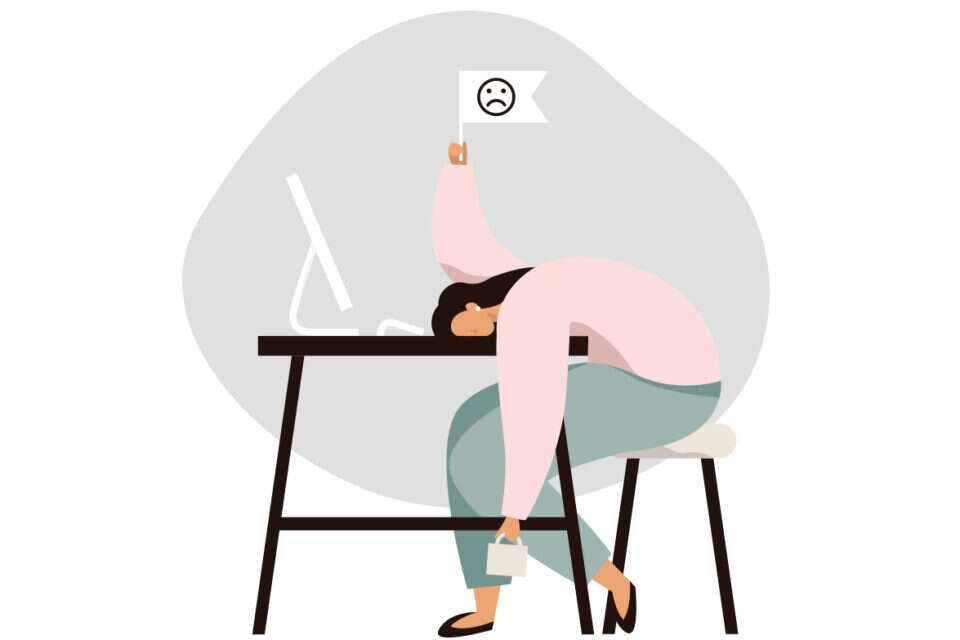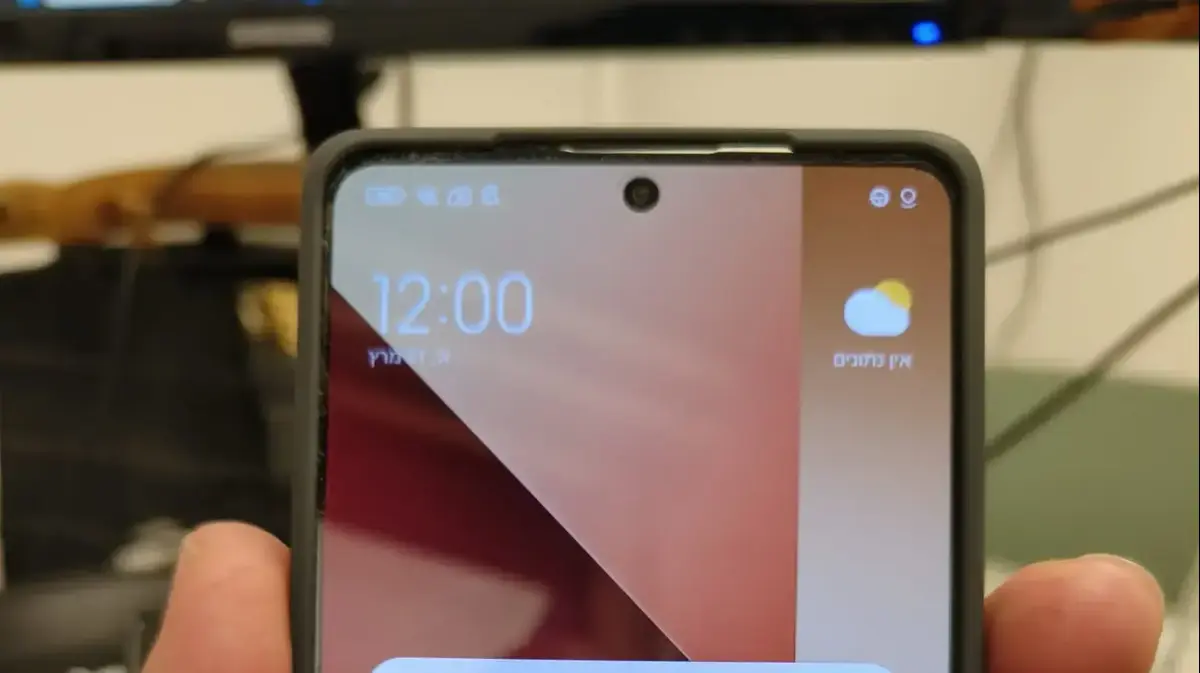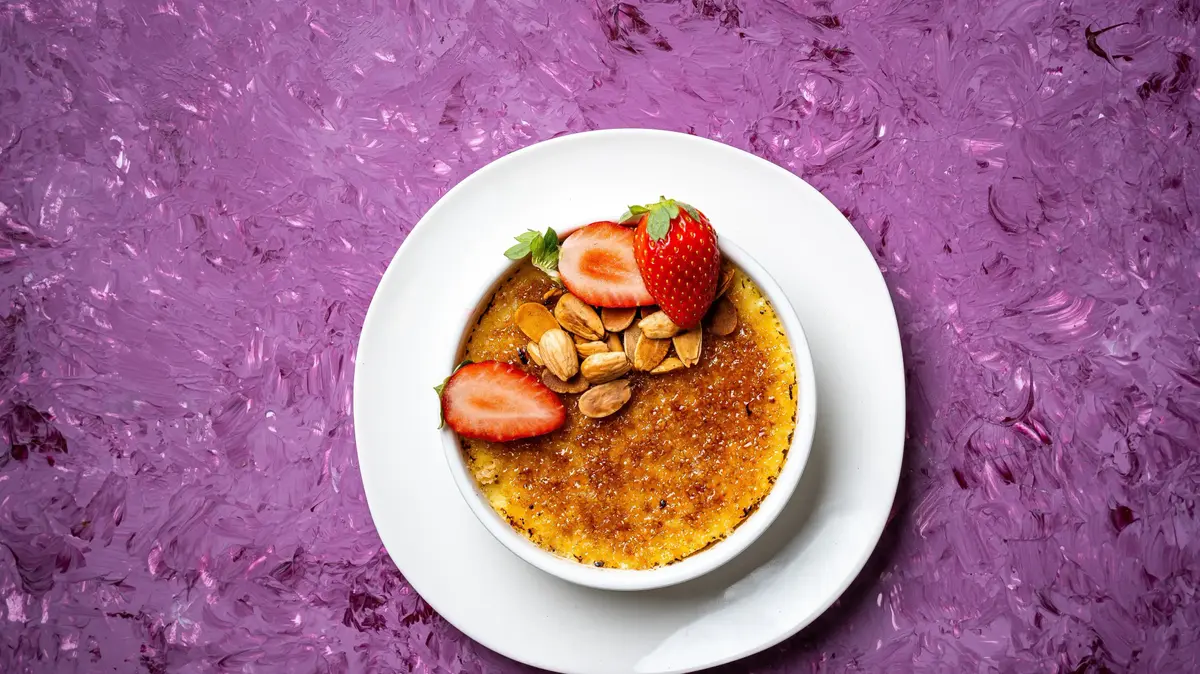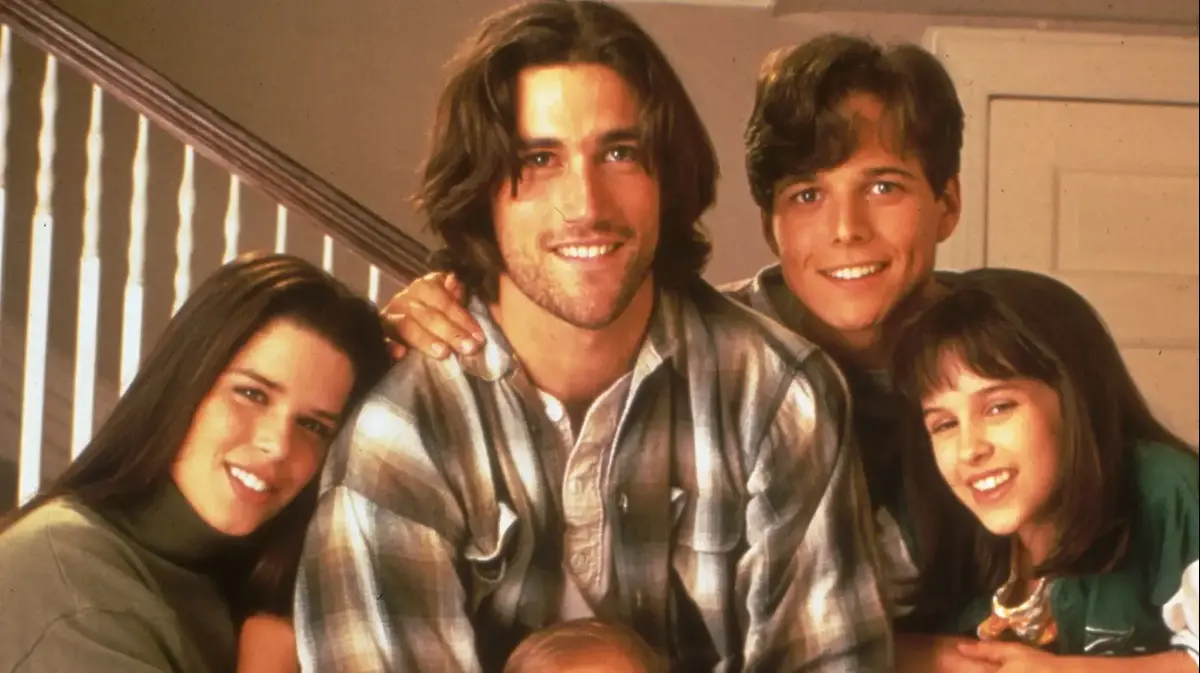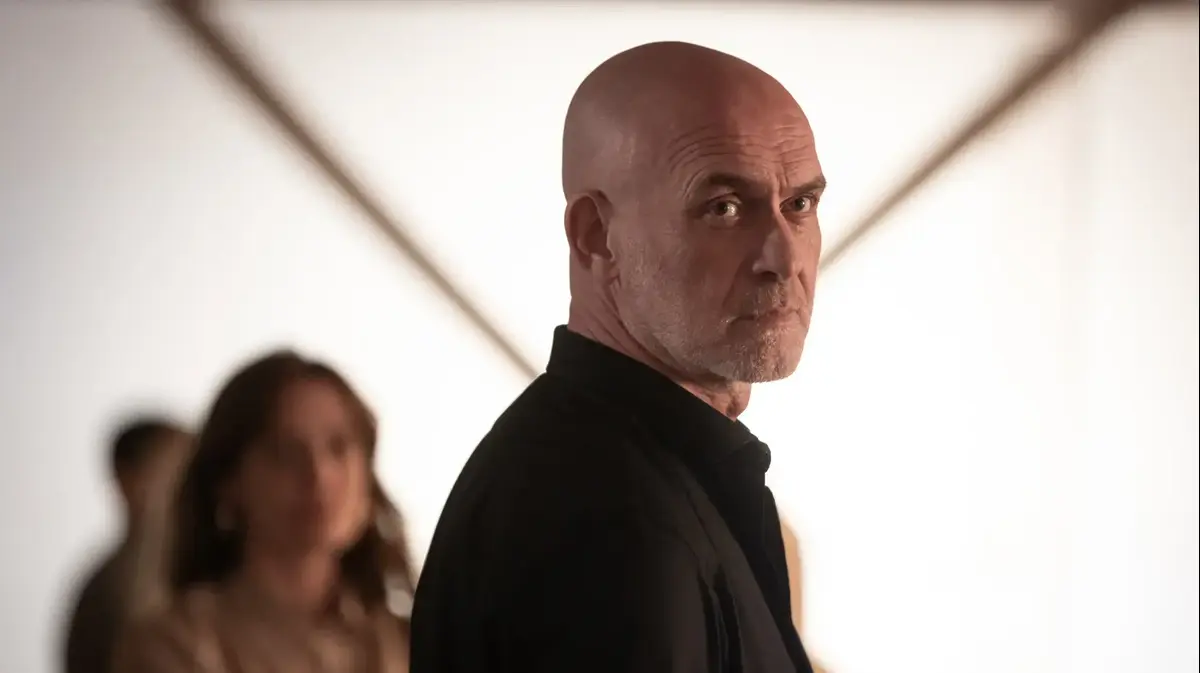I am?
Sick?
No way
"Wow Paula, you look really good, do you feel good? Maybe you want some tea?", that's how one of the production women of the morning show asked me during the commercial break a week and a half ago.
"No, no, I'm fine, just a little cold, it will go away by tomorrow."
I didn't mean to lie, so why did I hide the truth?
Why didn't I agree with her and shared with her that I'm not at my usual strength, that I'm close to the tissue and now I've also started to have a meninges cough, that the thing I most want to do is dig under the covers and sleep for at least 10 hours in a row?
Heat or nothing
Some of us tend to deny the status 'I'm sick' and push ourselves to the limit of our ability, announcing a break in the agenda only when the body is on the verge of collapse, or when we have a fever.
What's really the matter with the heat?
Why is it a standard sign for the disease?
After all, we all know that every person's fever is different, and there are some who do not raise a fever even when they are very sick, and yet, when the thermometer climbs more than 37.5 degrees, I receive clear approval and allow myself to be sick.
Brown is a standard that allows me to share with the world in an elevated way, proof that I'm not just being indulgent or lazy.
Just like a high score on a test is proof of proficiency, even though sometimes we know the material perfectly and the score falls short.
In the educated world we live in, we trust less in our bodies and subjective feelings, but much more in numbers and data.
That's why it's dangerous, raises a concern to test how much we are believed, after all, we hardly believe in ourselves.
For a week and a half I walked around weak and coughing and runny, but I wasn't sure I was sick.
It is enough to send a screenshot of a thermometer with the numbers 38.2 on it in the work WhatsApp group so that everyone will know that you are in bed, on the other hand, if the temperature does not rise, I have to trust my feelings,
The sick hero syndrome
Three years ago, the corona epidemic, with its multitude of variations, joined the celebration of the regular winter flu, and seemingly changed the rules of the game.
But not really.
I was sure that after we all learned to recite infectious agents and the ease with which we might spread viruses, the "sick hero" syndrome that characterizes the Israelis would disappear from the world, but it is still here, and this week I felt it in my flesh.
Don't google the "sick hero" syndrome, because I just made it up.
But I'm sure you all know them: those who come to work hunched over and drained and unable to admit the fact that they are sick or alternatively proudly say that they don't feel at their peak but "I didn't want to cancel the session", "I didn't want them to dump my job on someone else", or "I didn't want Lose the party."
There are those who see ignoring weakness, even if temporarily, as some kind of heroism.
Sore throat?
Suck some candies for relief, maximum painkiller and come on, back to work.
Israeli disease
In most parts of the world, a person with a cough or runny nose coming to work or a social event would be considered irresponsible and inconsiderate, even rude, because they dare to share their disease-causing pathogens with innocent people.
But with us, as part of the pioneer atmosphere, there is still a positive aura and labeling of people who deny being sick as the dedicated workers and investors or true friends who do not cancel.
I think it has to do with us being a country accustomed to wars.
In a culture of combat heritage, where wounded men turn other wounded men under fire, who would let a little chill affect him?
What are we, Nemusoth?
Female disease
Add to that the supposedly positive but actually toxic attitude towards women, about which I have already written before, according to which "you can do anything".
In order to be both an excellent mother and an inclusive partner and a thriving career woman and incredibly well-groomed, you can't really retire to bed for a few days, so it makes sense that you don't allow yourself to be sick, but only to have a cold.
A generational disease
There are no shortage of parents who urge a child who claims that he doesn't feel well to go to school after all, after all, you don't stay home because of any nonsense.
Come on honey, we'll take your temperature, here you don't have a temperature, come on put a bag on your back, you're just avoiding calculus class.
This is how we learn from a young age not to trust the body's messages and in addition to the self-doubt, a sense of guilt is also added for daring to think we are sick, when in fact we are trying to avoid responsibility.
I have a fever, call an ambulance
On the other hand, there are those who guard themselves excessively, for whom the "I'm sick" status is an opportunity to enjoy attention and to be freed from responsibilities and routine tasks for a few days, I'm sure they don't have too high feelings of guilt and that makes me jealous.
In contrast to the "sick hero" syndrome, there are those who regard themselves as an expensive etrog that must be wrapped in delicate silk fabrics, lest the breast should fall off.
They don't hesitate to take time out whenever a tickle in the throat or the first cough appears, and I'm a little jealous of them.
The fact that they allow themselves to rest, even at the cost of delay or failure, is not only enviable, it is also medically correct. that the survival mechanism has not heard of the pace of life that modern life requires.
In a perfect world that does not sanctify productivity and achievements at the expense of physical and mental health, we should all go to bed with the first cough,
Drink plenty of fluids and sleep until anger passes.
This is the effective and scientifically proven method to stop the virus in its infancy, but the conventional view does not sufficiently emphasize preventive medicine - which is the most important medicine.
The status is eroded
The sick hero syndrome has indeed been eroded by the corona epidemic, for the simple reason that people value more those who take social responsibility and avoid infecting others.
Today it is much more legitimate not to give up a day of work or any event because of a small cold.
Today, most of us cough into our elbow when in public and not into our hand, something I saw before the corona virus only abroad. I want to believe that the corona epidemic also encouraged people to wash their hands more often, certainly before they touch food, or other people.
(And please, even if you think that the discipline in this matter has already loosened, please allow me to continue to believe so that I can continue to enjoy myself in restaurants, for example).
The patient has a role
"The role of the sick", is a concept coined by the sociologist Talcott Parsons, who defined in his studies the behaviors expected of a person during his illness, and also the behavior expected from society.
Imagine that I would have told Galia from the production that day during the commercial break that I am really sick and I have to go home and rest.
The production would have had to find a replacement presenter for that day, I would have had to cancel the lecture scheduled months in advance that was held that evening, and piles of laundry would have piled up on the balcony.
It would have required me to recognize that I was condemning my surroundings to discomfort, even if momentary.
It took me another week until I admitted that I was sick, it happened last Friday when the cough left no room for doubt, I informed my dear family that I was taking the day to rest and that I apologize in advance that I would not be available to serve them.
Towards the evening I called to Leon who was sitting in the living room "Can you bring me something to eat?".
I enjoy and suffer at the same time when I ask him to bother for me, to stand in the kitchen and then serve Her Highness the meal for bed.
Even if he does it for fun, there is a voice that says to me, "Well, Paula, are you really not able to get up for a moment and warm yourself something?".
Some people do not know how to play the role of the patient in a good way and therefore prefer to give it up or postpone it as much as possible.
Being sick is a privilege
Another reason to prefer to give up the sick role is that reality leaves us very little time to be sick, because time is worth money, except for certain types of employees who can enjoy fully paid days off, for everyone else it is not economical to be sick.
In a capitalist world not everyone can afford to be sick, outrageous but true.
The State of Israel requires the self-employed to pay social security contributions, but does not compensate them with even one shekel when they are sick.
For years, social activists have been trying to change the situation, but the self-employed do not have a workers' committee that can shut down the economy or a partisan representation that can exert pressure on the coalition agreements.
And it's a pity.
to betray the disease
Those who are in the role of the patient are exempted from their duties, but the role of the patient also has an obligation: we expect the patient to do everything necessary to shorten the period he burdens us: rest, receive medical treatment, and of course - not to enjoy himself during the illness, certainly not while we are carrying the burden His.
Sick people who act contrary to the rules of recovery irritate us, and when I say we I again mean me.
If Leon isn't feeling well, I can be the lovely woman who tells him "Leon, go rest, get into bed and close the door, I'll take care of the girls and the house."
But if at the same time he went out on the balcony to smoke a cigarette, I would be very upset.
The same when one of the girls complains of a sore throat but leaves the house in a short shirt in December.
On Friday after I informed my family that I was sick, I declared that I was going to bed to watch television, an hour later Leon entered the room and saw that I was answering emails, and commented that I promised that I was going to rest.
The promise to rest is my way of proving that I take responsibility, and this is the only time I could hold back and not get angry that he criticizes me, because that's the deal: I function and take your tasks, you do everything to get well.
Not sick, healthy
The fear of admitting that I'm sick is the same as the fear of admitting that I'm sad, that I've been hurt, that I'm disappointed, they all stem from the fear of expressing vulnerability and wondering if we need others or depend on them.
The word "sick" also brings anxiety to the hypochondriacs among us.
When I have to, for example, inform the girls' teacher that they are staying at home because they don't feel well, I don't say that they are sick, god forbid, but share that "the girl is feeling well at home, so she won't come to school today."
We are healthy, not sick.
Surrender and let go
As mentioned, at the end of last week I agreed to adopt the role of the patient, at least a week late.
While I was resting in the bedroom, I heard the sound of a refrigerator opening and closing several times from the direction of the kitchen, I called there and saw that Sheila was looking for something to eat.
I immediately offered to cut a salad and cook rice with vegetables, the automatic offers are the result of the anxiety that here I am surrendering to weakness and abandoning my family to the cruel fate of hunger.
When the anxiety attacks there is no middle ground, the inner feeling is that in a few minutes a social worker will come in the door to find out why we are not feeding the girl.
Sheila looked at me with her smart look and said: "Mom, you said you don't feel well, it looks like you're sick. Maybe you should go to bed already instead of walking around here with the cough and the crushed face."
A second after I recovered from the shock, I told her she was right and went back to bed.
Why shock?
Because my daughter clearly saw what I tried so hard to hide. Sometimes the reason for avoiding the role of the patient is related to my need to control the situation and not just the fear of burdening others or not giving them what they want.
I thought I was making it easy for her when I offered to cook for her, I didn't think I was making her uncomfortable because I insisted on helping her despite my situation, which is an important life lesson.
In the end I surrendered.
Some
I got into bed and listened to music, watched another episode of "The White Lotus", surprisingly, none of the family members starved to death and the Ministry of Welfare did not send a delegation.
The next morning I woke up early to turn on the washing machine, because after all, there is a limit to devotion to illness.
Except that I already explained that I wasn't really sick, but just had a cold, and that too has already passed.
Obviously.
Why am I still coughing a little?
Oh crap, it's the leftovers from after.
Here I am trying to fulfill my role as a blue collar and for that I have collected medicinal plants for a quick recovery.
what's in the glass
Fresh ginger, sage leaves, thyme leaves, a teaspoon of manuka honey and elderberry infusion.
It is recommended both for patients, and for those who are not ready to admit it.
Do this to me:
"Eating for health": one of the more interesting books in the field of nutrition is the book by Dr. William Lee, a physician and scientist, who conducted studies that examined how the body can heal itself. This is a bestseller that I have read several times because it contains a lot of information and is not obvious about the mechanisms of The body's defenses and their relationship to our diet. He also has a website where he shares recipes and videos. Lee's research has influenced therapeutic concepts in many areas, including treatment protocols for certain cancers, diabetes, blindness, heart disease, and obesity. He also has a TED talk A very popular one called "Can we eat to starve cancer?"
Eat for health, photo: book cover
Info@paulanatural.co.il
were we wrong
We will fix it!
If you found an error in the article, we would appreciate it if you shared it with us

